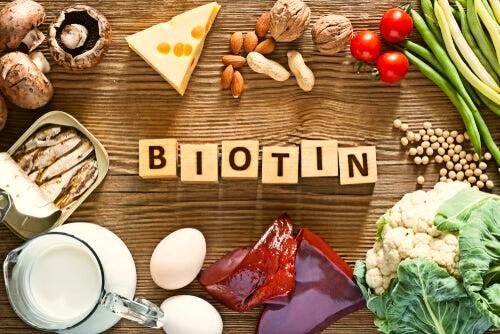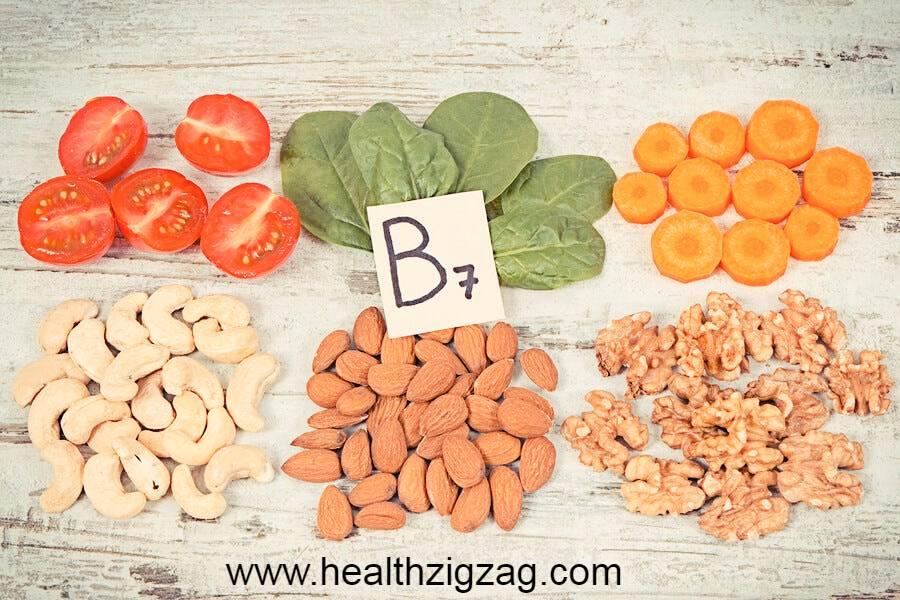
Contents
What is biotin?
Many myths have been built around biotin, mainly because it has been promoted as a component with important cosmetic effects. There is not enough evidence that it generates all the benefits awarded to it.
Biotin is a type of vitamin B that helps transform the carbohydrates, fats, and proteins we consume into energy. Originally it was called vitamin H, but it is currently called B7 and has gained a lot of popularity for its cosmetic action on nails and hair.
- What do you need for healthy hair and nails?
- How to take care of your nails naturally? Our home techniques
Biotin is considered an essential vitamin because of its decisive participation in the metabolism of sugars, fats, purines, and amino acids. It also influences the functioning of the nervous system, gene expression and endocrine activity in the thyroid, pancreas and adrenal glands.
B7 is present in a large number of foods, unlike other vitamins. It is also in nutritional supplements. The human being requires only small intakes of biotin to function properly. Children only demand 200 micrograms of this vitamin per day, and adults barely 300.
The effectiveness of biotin
Biotin frequently consumed as a nutritional supplement since it awarded a series of beneficial properties for the body. The available evidence indicates that it is probably effective only to compensate for the lack of organic biotin.

It is very rare that there are low levels of biotin in the body because this vitamin is in many foods. In addition, the amount required by the human being is low. However, there are some states or health conditions that lead to a decrease in this vitamin. This situation occurs mainly in:
- Pregnant: when the feeding is not ideal for the stage
- Probes: people who have been fed through probes for a long time
- Undernourished
- Severe tobacco or alcohol addicts
Unproven efficacy of artificial biotin
Although this vitamin promoted in the market as the answer to a large number of deficiencies and problems. The truth is that science has not found enough evidence about many of the benefits that are awarded to it.
There are preliminary, inconclusive investigations, which state that biotin can be useful in the following cases:
- Stop or moderate hair loss.
- Thicken and improve the nails of the hands and feet, when scales occur.
- Help regulate glucose levels and contribute to the reduction of peripheral nerve pain in diabetic people.
- Reduce muscle cramps in those undergoing dialysis.
- Improve vision and increase mobility in people with multiple sclerosis.
Although all these properties are awarded to him, there is still not enough volume of scientific evidence that he really has them.
Is its use safe?
The prestigious American magazine Consumer Reports said in one of its publications that the biotin supplement provides an amount up to 15 times greater than that required by a normal organism [1]. This generates an excess of plasma biotin, but the effect that this can have on health is still unknown.
Some experts consider that our body is perfectly capable of eliminating excess vitamin B7, without this implying any health problem. On the other hand, it has been suggested that this vitamin could affect fertility, but there is no study to support this assertion.
There are those who suspect that biotin may be harmful to pregnant women and the fetus. Nor is there any evidence of this. Either way, investigations on this substance are ongoing and so far there are many unresolved questions.
Sources and consumption of biotin
Most people get vitamin B7 from our usual diet. It is present in common foods such as meat, fish, eggs, offal, nuts, seeds and some vegetables such as sweet potatoes, broccoli, and spinach.
The main manifestations of the deficiency of this vitamin are the rash around the eyes, nose, and mouth, and the weakening of the hair. Likewise, there may be high concentrations of acid in the blood and urine, skin infections, frequent styes, brittle nails and problems in the nervous system.
The Bottom Line
Most people do not need to ingest biotin supplements. Its use became popular because it has been promoted as a cosmetic product. It is best to get this vitamin from food directly and not from supplements.
You May Like Also:




